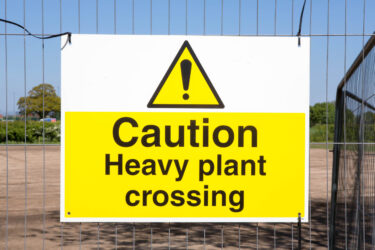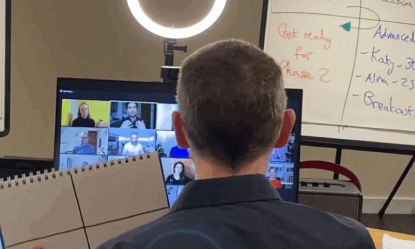The other day, I passed a sign on our regular Sunday walk. It read: “Heavy Plant Crossing.”

Now, if English wasn’t your first language, you might be picturing a monstrous cactus waddling across the road. Or a very determined sunflower with somewhere to be.
Of course, in UK construction terms, “heavy plant” means machinery; diggers, cranes, that sort of thing. But it got me thinking: how many things do we say at work that make total sense to us… and absolutely none to someone else?
We’re all guilty of it. Using local sayings, bits of slang, or expressions we’ve grown up with. But when you’re working across teams, time zones or even just departments, those phrases can land about as well as a “bull in a china shop”.
Take a pie chart. In France, it’s not a pie chart, it’s a camembert. In Italy, it’s a torta. In Germany, a Kuchendiagramm, literally, a cake diagram. Same data. Different flavours. And a strong reminder that not everyone sees the same thing when they hear the same words.
A few personal favourites:
“I’ll give it some welly.” (Meaning: I’ll put in more effort, not lend you a boot.)
“Bob’s your uncle.” (A perfectly normal way to say “there you go” in the UK. Utter nonsense to almost everyone else.)
“It’s all gone a bit pear-shaped.” (Something’s gone wrong, but not necessarily with fruit.)
It’s easy to forget that what’s familiar to us can be baffling to someone else. And that doesn’t just apply to regional sayings; it’s the same with workplace language. When we say things like “let’s take this offline” or “we need to move the needle”, we might as well be saying “the ducks have flown sideways”. That’s not a real phrase, but could you tell?
So what’s the risk? Confusion. Misinterpretation. Delays. More than that, a sense of exclusion. It’s not just about language barriers, it’s about clarity, empathy and connection. If people are quietly Googling what “touch base” means, we’re not really communicating. We’re just talking.
What helps? Speaking like a human. Using words people understand. Swapping “action that deliverable” for “let’s get it done” or “low-hanging fruit” for “easy win”. Better yet, say what you actually mean. And check in with people. If you’re not sure something landed, ask. Communication isn’t about being clever. It’s about being clear.
If a road sign can leave someone wondering whether triffids are about to cross the street, imagine how a slide full of jargon might feel to someone new to your team. Say what you mean. Say it simply. And maybe leave the “heavy plant” out of it.
















